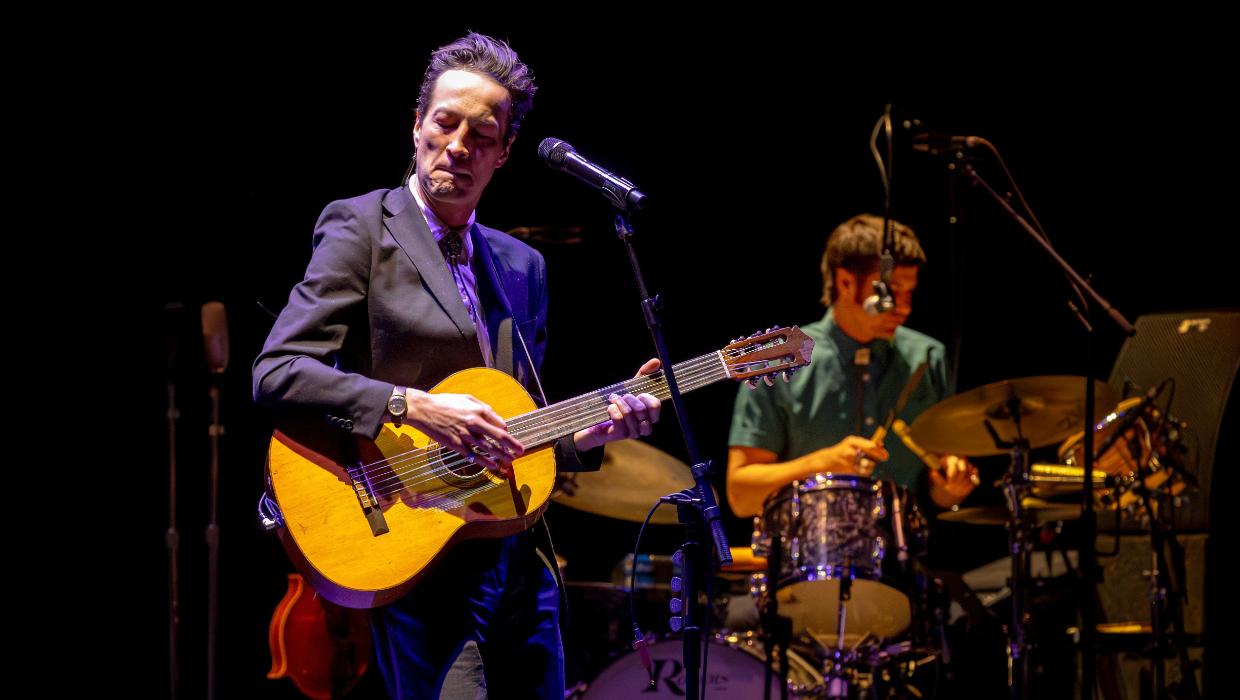Politics
Marlon Williams Embraces Māori Language in New Album

Marlon Williams has taken a significant step in his music career by recording his latest album entirely in Māori, aiming to promote the language and culture in a contemporary context. The New Zealand singer-songwriter, known for his soulful voice and diverse musical influences, expressed a desire to integrate the Māori language into his work as a means of normalizing its use within the music industry.
By choosing to record in Māori, Williams hopes to inspire other artists to explore and embrace indigenous languages. He stated, “I wanted to normalise it, for it to become a normal part of what I do.” This approach not only reflects Williams’ commitment to cultural preservation but also highlights his ambition to broaden the appeal of Māori music beyond traditional boundaries.
Revitalizing Indigenous Language Through Music
Williams’ decision comes at a time when New Zealand is increasingly acknowledging the importance of Māori language and culture. The Māori language, or Te Reo Māori, has experienced a resurgence in recent years, with many initiatives aimed at revitalizing its use among younger generations. By incorporating Māori into his music, Williams is contributing to this movement, making the language more accessible and relatable to a wider audience.
The album, set for release in late 2023, features a blend of traditional Māori sounds and contemporary musical styles. This fusion aims to resonate with both Māori and non-Māori listeners, showcasing the versatility and richness of the language. Williams believes that music serves as a powerful medium for cultural expression and can play a key role in the revitalization of indigenous languages.
Impact on the Music Industry and Beyond
Marlon Williams’ initiative is expected to influence not only his peers in the music industry but also the broader cultural landscape. As artists increasingly seek to connect with their roots, Williams’ album could pave the way for greater representation of indigenous voices in mainstream music. His work challenges the narrative that indigenous languages are outdated or irrelevant in today’s musical context.
The release of this album coincides with a growing trend among artists worldwide to incorporate their cultural identities into their work. By doing so, they foster a deeper connection with their heritage while engaging with a global audience. Williams’ commitment to Māori language and culture demonstrates the potential for music to bridge cultural gaps and promote understanding.
In an industry often dominated by English-language music, Williams’ album stands as a testament to the power of linguistic diversity. His efforts not only celebrate Māori heritage but also encourage listeners to appreciate the beauty and significance of indigenous languages globally. As the release date approaches, anticipation builds around how Williams’ unique approach will resonate with audiences both in New Zealand and abroad.
-

 World4 months ago
World4 months agoTest Your Knowledge: Take the Herald’s Afternoon Quiz Today
-

 Sports5 months ago
Sports5 months agoPM Faces Backlash from Fans During Netball Trophy Ceremony
-

 Lifestyle5 months ago
Lifestyle5 months agoDunedin Designers Win Top Award at Hokonui Fashion Event
-

 Entertainment5 months ago
Entertainment5 months agoExperience the Excitement of ‘Chief of War’ in Oʻahu
-

 Sports5 months ago
Sports5 months agoLiam Lawson Launches New Era for Racing Bulls with Strong Start
-

 World5 months ago
World5 months agoCoalition Forms to Preserve Māori Wards in Hawke’s Bay
-

 Health5 months ago
Health5 months agoWalking Faster Offers Major Health Benefits for Older Adults
-

 Lifestyle5 months ago
Lifestyle5 months agoDisney Fan Reveals Dress Code Tips for Park Visitors
-

 Politics5 months ago
Politics5 months agoScots Rally with Humor and Music to Protest Trump’s Visit
-

 Top Stories5 months ago
Top Stories5 months agoUK and India Finalize Trade Deal to Boost Economic Ties
-

 Health2 months ago
Health2 months agoRadio Host Jay-Jay Feeney’s Partner Secures Visa to Stay in NZ
-

 Top Stories2 weeks ago
Top Stories2 weeks agoTongan Star Eli Katoa Shares Recovery Update After Surgery









